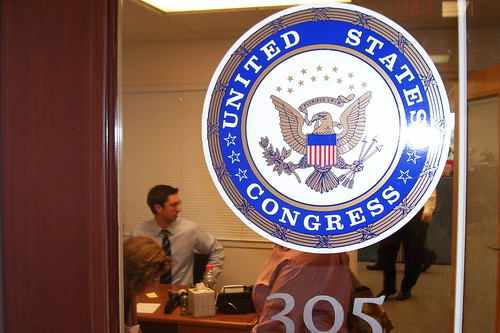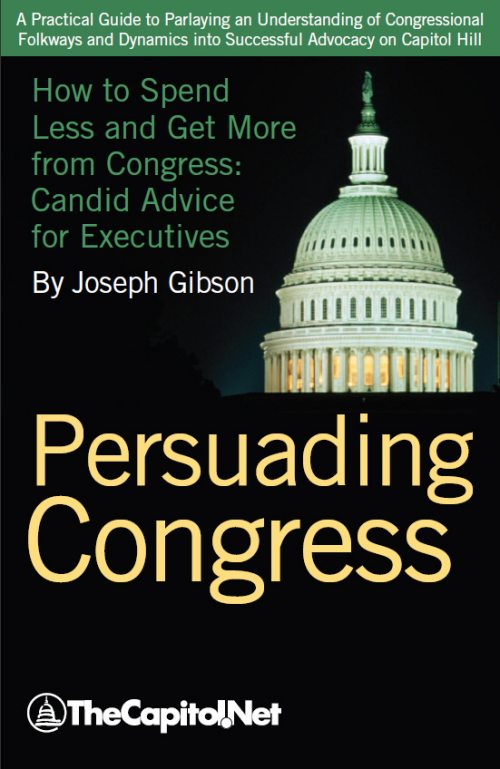Washington, DC is home to thousands of interest groups and lobbyists, all with a single goal: attempting to influence public policy. Although many do not like the idea of interest groups and lobbyists influencing Congress, it is likely that the number of interest groups and lobbyists will continue to grow. Mancur Olson made this point in “The Logic of Collective Action,” first published in 1965.

The most important aspect of interest groups and lobbyists is that their activity is protected by the First Amendment of the Constitution.
Congress shall make no law…abridging…the right of the people…to petition the Government for a redress of grievances.
There is a wide variety of lobbyists and interest groups that work in Washington on a daily basis to represent the interests of a thousands of organizations and businesses. Most large businesses and labor unions employ lobbyists in-house, and thousands of lobbyists work in and with trade associations. There are hundreds of independent lobbying and law firms that provide advocacy services.
Lobbyists and interest groups can have a definite affect and influence on Congress. Because it is practically impossible for any single member of Congress to understand every aspect of a particular issue, members rely on lobbyists to provide background information and explain the way in organizations and businesses operate before they form an opinion on a particular issue.
In many cases a business or organization may actually be part of a member’s constituency, which means that when the member hears from an interest group or lobbyist they are actually hearing about the interests that affect the people they represent.
If you belong to almost any kind of national organization, you belong to a “special interest group.” And if your interest group is not represented in Washington, other organizations, including allies and  opponents, will have representatives who are active and busy in Washington trying to ensure the greatest advantage possible. Small groups are often represented through a trade association, while larger groups may employ an independent firm to represent them.
opponents, will have representatives who are active and busy in Washington trying to ensure the greatest advantage possible. Small groups are often represented through a trade association, while larger groups may employ an independent firm to represent them.
Reference: Persuading Congress, by Joseph Gibson, Ch. 12, Interest Groups and Lobbyists.
Courses
- Congressional Operations Briefing – Capitol Hill Workshop
- Congressional Dynamics and the Legislative Process
- Drafting Federal Legislation and Amendments
- Understanding Congressional Budgeting and Appropriations
- Advanced Legislative Procedure
Publications
CongressionalGlossary.com, from TheCapitol.Net
For more than 40 years, TheCapitol.Net and its predecessor, Congressional Quarterly Executive Conferences, have been teaching professionals from government, military, business, and NGOs about the dynamics and operations of the legislative and executive branches and how to work with them.
Our custom on-site and online training, publications, and audio courses include congressional operations, legislative and budget process, communication and advocacy, media and public relations, testifying before Congress, research skills, legislative drafting, critical thinking and writing, and more.
TheCapitol.Net is on the GSA Schedule, MAS, for custom on-site and online training. GSA Contract GS02F0192X
TheCapitol.Net is now owned by the Sunwater Institute.
Teaching how Washington and Congress work ™

